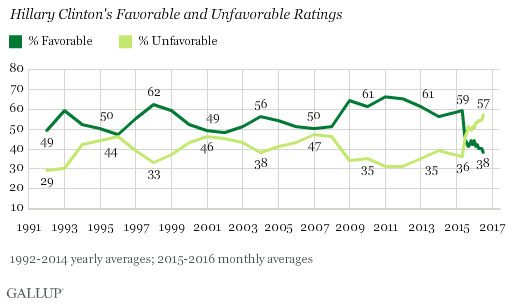Except again with all do respect they aren't comparable.
US essentially has three elections (Two primaries plus GE)
Two - you can't participate in both primaries; they're functionally part of the same election process. And when you reach that point... so does the Parliamentary system. First, you have the general election. Then you have the "hidden election" - the legislature failing to VoNC the Prime Minister. It is most useful to think of the primary in US politics as equivalent to the "hidden election", and the general election as the same in both. US politics is "back to front" compared to other systems. First, you build the coalitions (the primaries), then you win offices (the the general). In the European, you win the offices (the general), then you build the coalition (the 'hidden election'). So, in that sense, they are comparable. Not identical, no, but similar enough we can draw lessons of what does and doesn't work from the differences (and the similarities).
Also if the US had a different system
Sanders vs Clinton wouldn't be for a party leadership but for Prime Minister or President.
Correct, yes; that is my entire point. The "Sanders Party" and the "Clinton Party" would have contested a general election. The Sanders Party would have won, I don't know, 40 seats, and the Clinton Party 60. They are more similar to each other than they are to the Kasich Party or the Trump Party, so they decide to form a coalition. As per tradition, Clinton becomes Prime Minister, as leader of the largest party in the coalition... but the Prime Minister's policy agenda and cabinet appointments are decided proportionally. The Sander Party can expect to get 40% of the cabinet positions and 40% of the policy manifesto, or they can just walk.
In the American system, the "Sanders Party" and the "Clinton Party" contest a primary. The Clinton Party wins, and forms a coalition of the "Sanders Party" and the "Clinton Party" - called the Democratic party. If the Democratic Party wins the election, Clinton becomes President, but has absolutely no requirement to select a policy agenda proportionately or make cabinet appointments proportionally. The Sanders Party can expect absolutely nothing, unless they threaten to ask their votes to not vote for the Clinton Party (hard to do).
This means that parties in the American system (I keep saying American system, really it is just any majoritarian system, which includes a number of European countries like the UK and France) tend to have *much* more hostile leadership elections than do European ones. The best strategy to pursue in the American system is to threaten to ask your voters not to vote. It's the only way to make the other side listen to you. The best strategy to pursue in the proportional system is for everyone to work together. Everyone's share of the pie is already allocated at the institutional level, so the primary motivation is increasing the size of the pie.
Which means he also has to run against Trump and since they'd be different parties it would also mean all bets are off in terms of campaigning from Clinton and he'd have gotten hit hard on his tax plans, etc...
I mean, yes, things would like different. That's an obvious truism. I'm arguing that they would probably be better. That's my argument. If the winner of the Democratic nomination was institutionally obliged to offer a portion of the policy slate and appointment slate to all other candidates, in proportion to how well those candidates did, then primaries would be a lot less vitriolic.
I mean, you might think that the vitriol serves a useful purpose, or that there are other valuable reasons to concentrate power so heavily and with so little respect for democratic egalitarian norms, fine. But I'm specifically responding to the idea that the vitriol we've seen was unexpected or a product of long time scales or a product of Sanders specifically. No, it was entirely expected having happened many times before, is the product of the way the Democratic primary is structured, and all losing candidates are incentivized to act this way - just as Clinton did in 2008.

